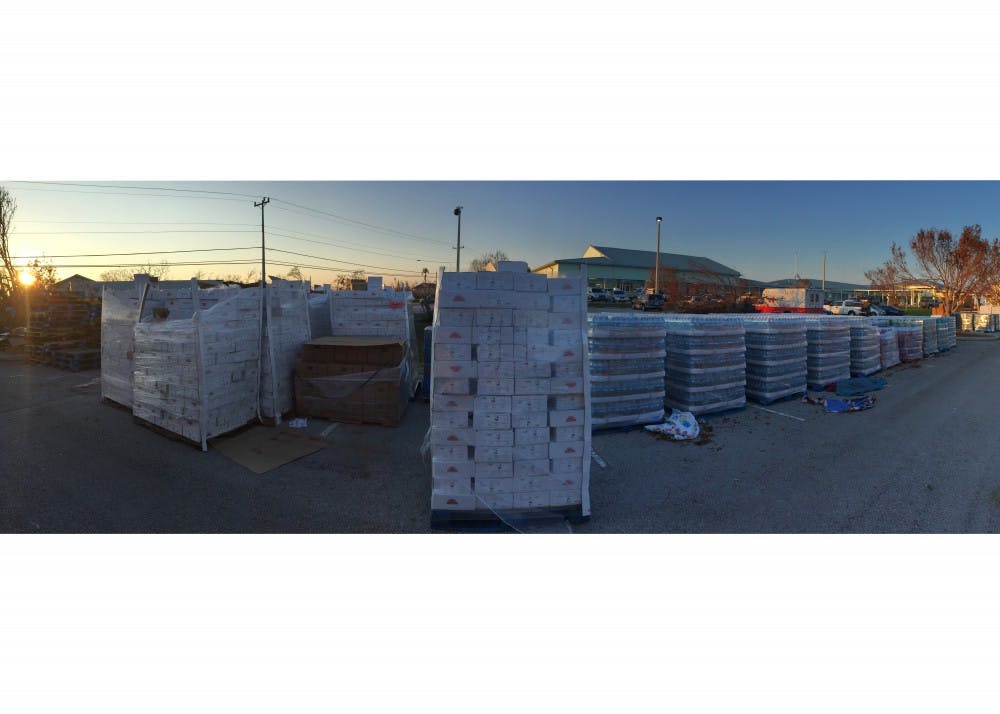After wildfires, floods, earthquakes and three major hurricanes ravaged the United States and countries around the world, IU faculty members are looking for ways to help without wasting resources.
Arlene Diaz, an associate history professor at IU, was born and raised in San Juan, one of the Puerto Rican cities hit hardest by Hurricane Maria. She said she had friends and family members living in affected areas.
Diaz said she and other IU professors with ties to countries affected by recent natural disasters were planning Bloomington-wide fundraising efforts.
“We want to get as many people involved as we can so that we can help as many people as we can,” she said.
In a letter distributed through IU Listservs, Diaz and three other professors reached out to IU students and faculty to raise funds for recovery efforts. The three other professors were Raquel Anderson, Luis Gonzalez and Juan Manuel Soto-Arrivi.
The letter recommended local and international charities the professors saw as effective in each region.
For earthquake recovery in Mexico, the professors suggested the International Community Foundation, the National Museum of Mexican Art, Chicago for Mexico and the Hispanic Federation.
The Hurricane Maria Community Recovery Fund, the Episcopal Relief Fund and the Fundacion Comunitaria de Puerto Rico are effective charities for Hurricane Maria recovery efforts in Puerto Rico, they said.
But for Hurricane Maria recovery in the U.S. Virgin Islands and other regions in the Caribbean, the professors suggested All Hands and Unicef.
With so many charities working in affected areas, Ryan Chandler, assistant director for emergency management and continuity at IU-Purdue University Indianapolis, said it can be difficult for people to figure out how they can make a difference.
“There’s so many charities to choose from, so you really have to do your research about where you’re sending donations to,” he said.
Chandler, who was part of an eight-person team deployed from IU to Florida in the wake of Hurricane Irma, said this research included asking questions about how much experience a charity had, how connected it was to the community and other local charities and how it allocates its funds.
Chandler said looking at connections among different charities can go a long way.
While in Florida, he said there were 55 to 60 charities working in individual communities, but they often did not work together or communicate. He said the failure to coordinate resulted in wasted resources.
Diaz said part of avoiding wasted resources involved researching charities that do not use much of the donated funds for overhead or administrative costs.
“You want the aid to go directly to the people,” she said.
John Summerlot, IU director of veteran support services, was also a member of the eight-person team deployed to Immokalee and Tallahassee, Florida.
He said effective recovery does not mean sending any supplies people find lying around their houses.
“The answer to recovery is not filling up a semi-truck and sending it down there, which is everyone’s gut instinct,” he said.
Chandler said charities needed to better communicate their needs to donors and that donors should listen to the specific needs of a community rather than make assumptions.
Many people in colder regions assumed people displaced in Florida would need to stay warm, Chandler said. While he said they had good intentions, these donors might send truckloads of winter coats to Florida in 100-degree weather.
“They don’t need winter jackets or truckloads of teddy bears,” he said. “We need to make sure the right information about what’s needed is getting out there.”
When donating supplies, Chandler said donors should see whether a charity had the means to transport and distribute everything to areas with the most need.
He said he saw many cities overwhelmed by too many semi-trucks or supplies and other cities that did not receive enough.
Summerlot said sending money rather than supplies allows charities on the ground to choose how to allocate funds and go about fixing houses and restoring farmland.
"It may seem impersonal, but money can go a long way," he said.




